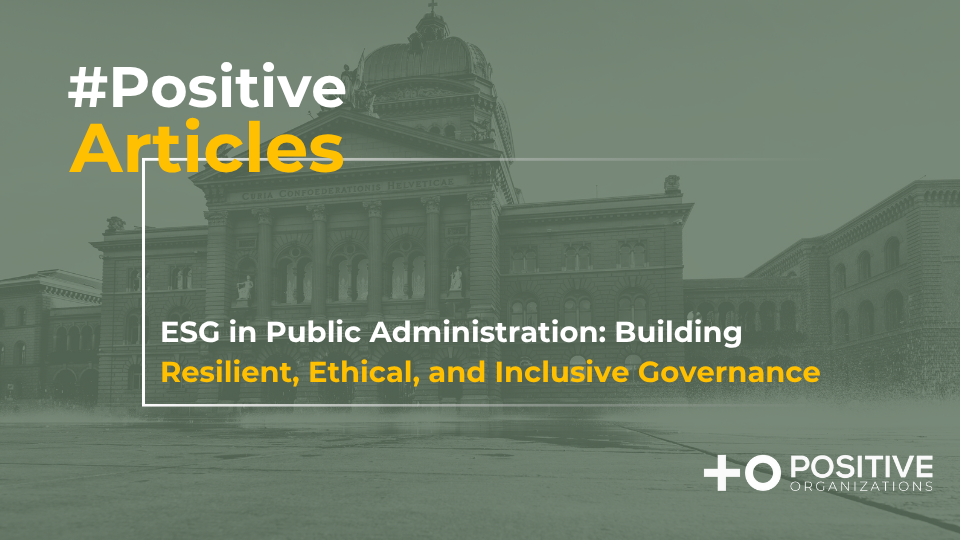.png)

The Swiss Climate Scores are a framework introduced by the Swiss Federal Council to enhance transparency in the financial sector, ensuring investments align with the climate goals of the Paris Agreement. By providing clear, standardized information, these scores empower investors to make informed decisions while fostering a transition to a low-carbon economy.
Purpose and Importance
The primary goal of the Swiss Climate Scores is to evaluatehow financial investments align with the target of limiting global warming to 1.5°C above pre-industrial levels. They are designed to help institutional and private investors assess the climate impact of their portfolios and understandthe readiness of invested companies to transition toward net-zero emissions.
In a financial landscape increasingly influenced by environmental, social, and governance (ESG) considerations, the Swiss Climate Scores address growing demands for accountability and transparency. They serveas a tool for promoting climate-conscious investments, supporting Switzerland's broader commitment to achieving net-zero greenhouse gas emissions by 2050.
Key Features of the Swiss Climate Scores
The Swiss Climate Scores assess investment products usingsix core indicators that reflect both current emissions and future transitionpotential:
- Greenhouse Gas (GHG) Emissions
Measures the carbon intensity and overall emissions (scopes 1, 2, and relevant scope 3) of companies in the portfolio, providing insight into their current environmental impact. - Exposure to Fossil Fuels and Renewables
Evaluates the portfolio’s share of revenues derived from fossil fuel activities versus those from renewable energy sources, highlighting its role in the energy transition. - Global Warming Alignment (Optional)
Estimates the temperature increase implied if the global economy mirrored the ambitions of the portfolio’s companies, offering a snapshot of alignment with Paris Agreement targets. - Net-Zero Commitments
Assesses the proportion of companies within the portfolio that have publicly committed to achieving net-zero emissions, supported by verified interim targets. - Climate Stewardship
Measures the extent of active engagement with companies on climate-related matters, including voting on climate resolutions and participation in climate-focused initiatives. - Net-Zero Management by Financial Institutions
Examines whether the institution managing the portfolio is committed to net-zero targets, with credible strategies and milestones to reduce its carbon footprint.
Voluntary Adoption and Suitability
The Swiss Climate Scores are voluntary but strongly recommended for financial institutions such as banks, asset managers, and insurers that provide investment solutions. They are most applicable to diversified equity and corporate bond portfolios due to robust data availability but less suited for instruments like cash, sovereign bonds, and highly complex derivatives.
Benefits of the Swiss Climate Scores
- Transparency for Investors
By providing standardized and comparable data, the scores allow investors to understand the climate-related impact and risks of their portfolios clearly. - Alignment with Global Standards
The scores reflect global best practices and align with international frameworks such as the Task Force on Climate-Related Financial Disclosures (TCFD). - Encouragement of Climate Action
The framework incentivizes companies and financial institutions to adopt robust climate strategies and contribute to global decarbonization efforts. - Regulatory Readiness
Financial institutions using the Swiss Climate Scores demonstrate a proactive approach to regulatory trends, preparing for future climate-focused disclosure mandates.
Implementation and Updates
The Federal Council considers the Swiss Climate Scores asthe current best practice for establishing transparency on the alignment ofi nvestments with the Paris Agreement's climate goals. To maintain their relevance and effectiveness, the scores will undergo regular reviews and updates based on the latest scientific findings and practical insights. Changes to the previous version must be implemented by January 1, 2025, after which the earlier version will no longer be valid.
By adopting the Swiss Climate Scores, financial institutions can provide clients with meaningful information on the climate compatibility of their investments, thereby supporting informed decision-making and contributing to global climate objectives.
At Positive Organizations we are uniquely positioned to support your financial institution in adopting and maximizing the value of the Swiss Climate Scores. Our expertise lies in translating sustainability frameworks into actionable strategies, empowering organizations to align their portfolios with global climate objectives while achieving business success. Here's how we can help:
1. Tailored Assessment and Gap Analysis
We conduct a thorough evaluation of your current investment portfolios against the Swiss Climate Scores indicators. This includes:
- Measuring carbon intensity and GHG emissions (scopes 1, 2, and relevant scope 3).
- Assessing exposure to fossil fuels and renewables.
- Benchmarking against net-zero commitments and global warming alignment goals.
Through this analysis, we identify gaps and opportunities for improvement, providing a clear roadmap for compliance and beyond.
2. Strategic Integration of ESG and Climate Goals
We integrate the Swiss Climate Scores into your overall ESG strategy to ensure alignment with broader organizational goals and regulatory trends. This includes:
- Embedding climate metrics into your risk management and reporting systems.
- Aligning with international standards such as the TCFD and upcoming regulatory mandates.
- Developing clear communication tools to showcase your climate leadership to stakeholders.
3. Capacity Building and Training
Our team provides training to your staff on the Swiss Climate Scores, ensuring they understand and can implement the framework effectively. This empowers your team to:
- Interpret and use climate data meaningfully.
- Respond proactively to investor inquiries regarding portfolio climate alignment.
- Strengthen internal expertise in ESG and climate-focused decision-making.
4. Ongoing Monitoring and Reporting
We support you in establishing robust monitoring and reporting mechanisms to track progress and maintain alignment with the latest updates to the Swiss Climate Scores. This includes:
- Creating transparent, standardized reports for your investors and clients.
- Staying ahead of regulatory and scientific developments to ensure compliance.
- Regularly reviewing and updating your strategies based on evolving best practices.
Start Your
Journey Today









.png)





